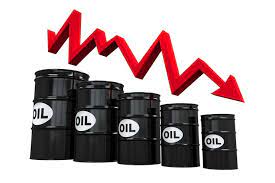Oil trickled down on Thursday, hovering around two-month lows, as the proposed price cap on Russian oil from Group of Seven (G7) nations was considered higher than the current trading levels, alleviating concerns over tight supply.
A greater-than-expected build in U.S. gasoline inventories and widening COVID controls in China added to downward pressure. Brent crude futures dipped 21 cents, or 0.3%, to $85.20 a barrel by 0431 GMT, while U.S. West Texas Intermediate (WTI) crude futures fell by 16 cents, or 0.2%, to $77.78 a barrel.
Both benchmarks plunged more than 3% on Wednesday on news the planned price cap on Russian oil could be above the current market level. The G7 is looking at a cap on Russian seaborne oil at $65-$70 a barrel, according to a European official, though European Union governments have not yet agreed on a price.
The range of $65‑$70 would be higher than markets had expected, Commonwealth Bank commodities analyst Vivek Dhar said in a report. It would reduce the risk of global supply being disrupted, Dhar said.















